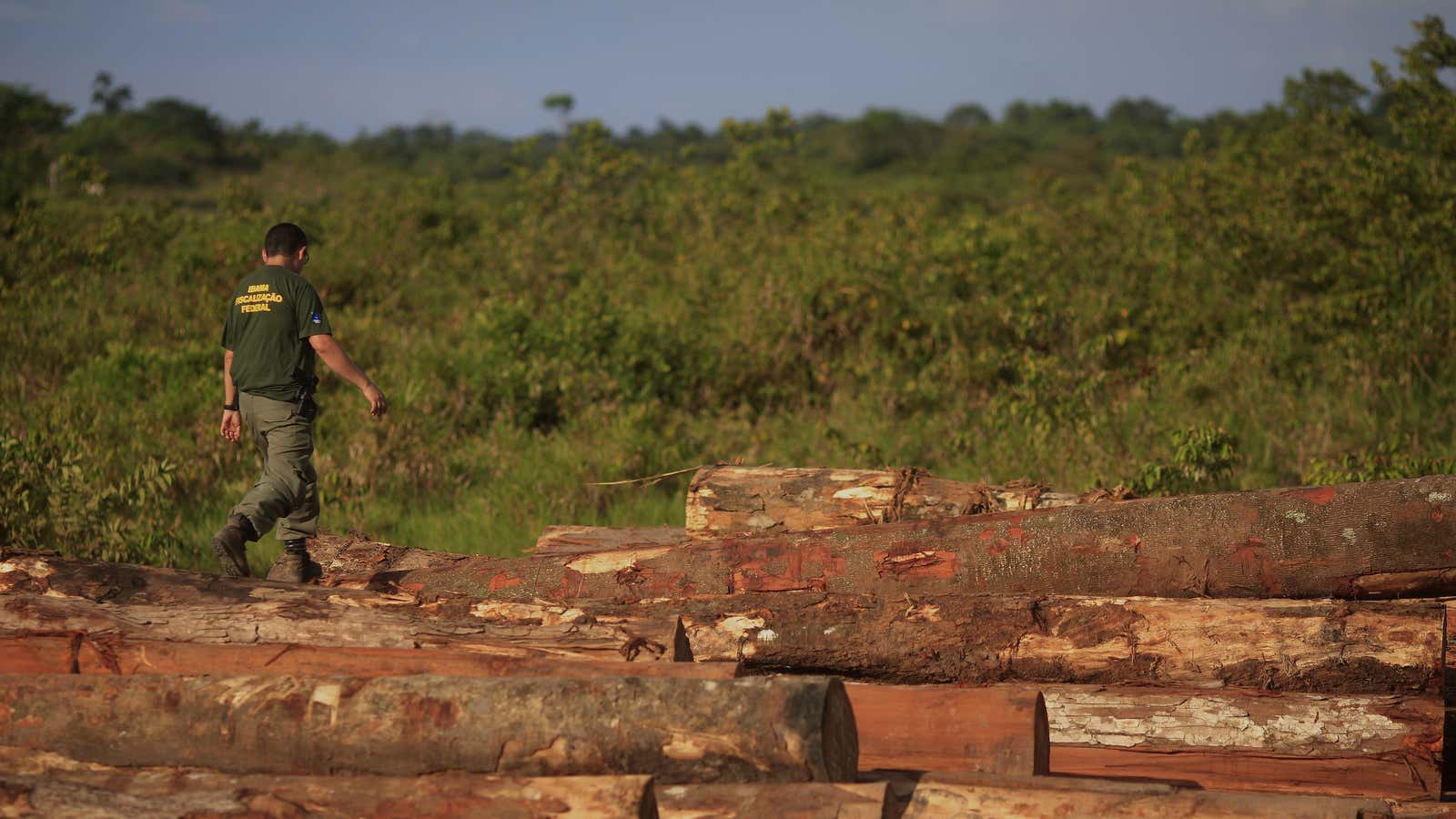Why has Brazil slashed deforestation over the last decade while Indonesian deforestation has accelerated? The two countries lead the world in deforestation, which, after energy use, is the top source of greenhouse-gas emissions. In the last week, each country has released an emissions-cutting plan in anticipation of the Paris climate summit that relies heavily on avoiding deforestation. Figuring out why Brazil has succeeded while Indonesia has lagged can provide insight into how both countries can do more.
Earlier this year I gathered a multidisciplinary group to explore the Brazilian experience and extract lessons for climate policy. Some of the highlights are summarized in a short report that we’ve just released. We looked at a wide range of issues, many of which are discussed in the report, but I was particularly intrigued by our discussion of why Brazil and Indonesia turned out so differently from each other.
The most obvious reason is that Brazil had an earlier start. Its government has been focused on reducing deforestation for over a decade; the Indonesian government hasn’t started looking at the issue seriously until more recently. This is actually good news, since it’s something that time should overcome.
Governance and rule of law also stood out as big factors. Both countries have fairly decentralized governance—a feature that should make controlling deforestation difficult since decisions from the center don’t always translate into action. But Indonesian governance is considerably less centralized, which puts Indonesia at a disadvantage. Similarly, since avoiding deforestation requires effectively enforcing laws, corruption is a big barrier to success. Brazil obviously has its fair share of corruption problems, but Indonesia is arguably worse. Both of these factors make avoiding deforestation more difficult in Indonesia. But there’s a bright side: neither needs to be permanent. Governance structures change over time; countries also reduce corruption and improve the rule of law. None of this is easy, of course, and it’s unlikely to happen just to facilitate avoided deforestation, but it at least offers some promise.
The last factor that came out in our discussion, though, augurs much more poorly for Indonesian prospects. Amazonian timber has typically been cleared to create cropland or pastureland, or, more simply, to establish ownership of a given tract of land. The wood itself is typically mostly worthless. In contrast, in Indonesia, the trees that are cut down are usually highly valuable. That means that the economic incentive for deforestation is much stronger in Indonesia—which, in turn, means that policy needs to lean much harder against deforestation in order to succeed. This factor suggests that replicating the Brazilian experience in Indonesia will be more difficult than many would hope.
